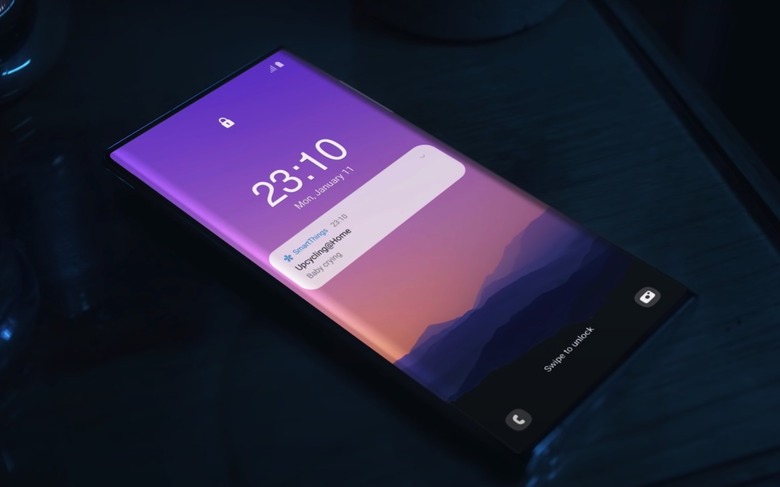Leaker Says Samsung Will Probably Switch To Google's Mysterious New Mobile OS
Fuchsia OS is no longer just a wild rumor about an operating system that could someday replace Android and help Google get rid of the most annoying thing about its mobile OS. When Fuchsia rolls out to commercial devices, it'll offer Google something Android never could, the chance of actually controlling software releases on all devices just like Apple does with iOS. That's what rumors say, at least. Built from the ground up, Fuchsia will run on devices with various form factors, from smartphones and tablets to laptops and smart devices that do not have displays. The new operating system should offer improved security and privacy, according to reports. And it'll run all existing Android apps, which will be a crucial feature if Google hopes to transition customers from Android to Fuchsia.
Also key for this transition is the support of Android device vendors, and a top leaker now claims that Samsung will likely adopt Fuchsia in the future.
Well-known Samsung insider Ice Universe routinely leaks details about unreleased Samsung devices, and on Friday he posted this unexpected statement: "It is very possible that Samsung will adopt Fuchsia OS in the future."
It is very possible that Samsung will adopt Fuchsia OS in the future
— Ice Universe (@UniverseIce) May 14, 2021
It's unexpected because there's no indication that Fuchsia will roll out to OEMs anytime soon, although we have seen evidence that says the first Fuchsia beta releases might be close. Or, put differently, Google may soon demo Fuchsia's capabilities to a broader audience, not just the developers looking to support it at soon as it rolls out.
The fact that Samsung might adopt Fuchsia OS in the future shouldn't really be up for debate. Samsung has no choice but to use whatever operating system Google makes for mobile devices. Samsung did try its hand at making its own mobile OS with Tizen, but it failed spectacularly. On the other hand, Samsung does develop the user interface that sits atop Android on its devices, as it always has. So the company could attempt to come up with its own OS for smartphones and tablets going forward. It could even fork Android on its own, just like Huawei was forced to do after the US banned it from working with Google.
But Samsung and Google are working together closer than before. Samsung is reportedly developing the custom Google chip that will power the Pixel 6 phones this year.
Also, Samsung made a key move that indicates its commitment to Google's mobile OS last year. Samsung promised to offer three years of Android updates to a wide range of Android devices, not just the flagships. This was a welcome change from Samsung's previous attitude towards Android updates. The Galaxy S and Note would always be the first to run the latest Android release, but Samsung was never among the next round of companies to roll out those updates. Now, Android updates are released earlier than before, and Samsung brings them to more devices.
Suppose Fuchsia gives Google the ability to update all its gadgets simultaneously, just like Apple does with iOS. In that case, Samsung will surely want to have Fuchsia on its smartphones and tablets as soon as possible.
Since we did mention Huawei before, the Chinese handset maker is developing a Fuchsia-like OS of its own called HarmonyOS, which will run on future Huawei smartphones. Recent rumors said that other Chinese smartphone vendors might also be interested in HarmonyOS. But the problem with whatever Huawei might be working on is that it might not run existing Android apps by default. Fuchsia, on the other hand, will.
That said, we're still reading too much into this leaker's message. We have no idea when Fuchsia will be unveiled or how long it'll take for it to reach smartphones and other devices. Hopefully, next week's Google I/O might offer us some clues in that regard.
